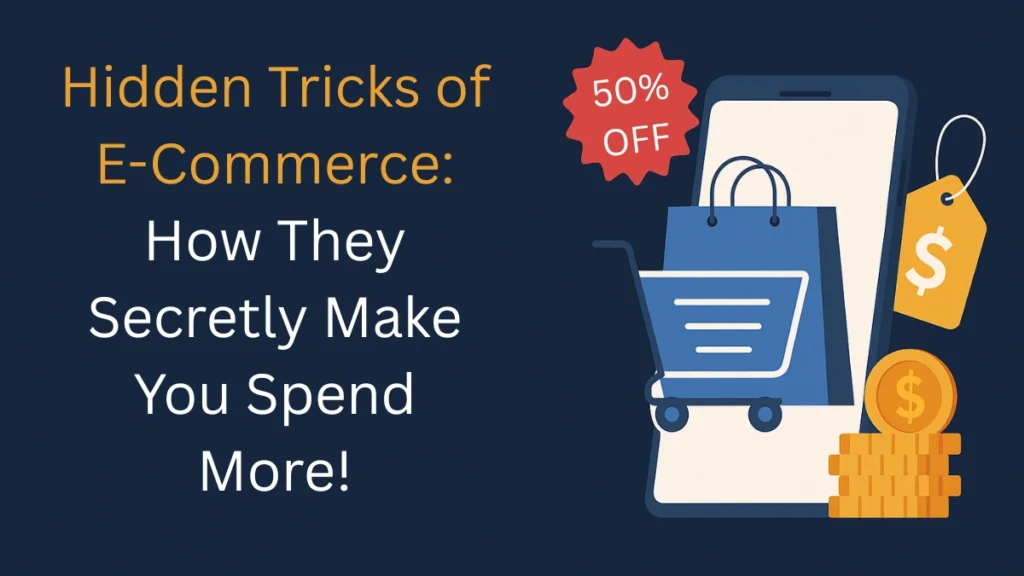Introduction
E-commerce has transformed how we shop. With a single click, we can order products from anywhere in the world. But behind this convenience lies a cleverly designed system that psychologically pushes customers to spend more than they intend to.

Let’s uncover the top 10 sneaky tactics e-commerce platforms use to influence your buying decisions.
- The Flash Sale Trap
Those countdown timers saying ‘Offer ends in 5 minutes’ are designed to create urgency and fear of missing out. In many cases, the timer resets or is purely decorative. - Limited Stock Illusion
Messages like ‘Only 3 items left!’ are intended to pressure buyers into quick decisions — though the stock may actually be plentiful. - Cross-Selling and Upselling Tactics
After adding an item to your cart, you’ll see suggestions like ‘Customers also bought…’ or pricier versions of your product — tempting you to spend more. - Bundling Tricks
Products are sold together at a supposedly discounted rate. Often, buying items separately can cost less. - Free Shipping Triggers Overspending
You might add unnecessary items to your cart just to reach a ‘Free delivery on ₹500’ mark, even if your total spend increases unnecessarily. - Anchor Pricing Manipulation
An item might show a ‘was ₹4999, now ₹1999’ price tag. This makes the deal look irresistible, but the item’s actual market price is ₹1999. - Limited Time Deals Pressure
Tags like ‘Today Only’ push shoppers into instant decisions, leading them to purchase things they don’t need. - Fake Customer Reviews
Some positive reviews are paid or generated to inflate product appeal. - Free Gift Deception
‘Buy for ₹2000 and get a free item!’ seems tempting, but you often end up buying unwanted items just to grab the gift. - Push Notifications and Emails
Regular notifications about offers entice you to visit the site and eventually buy something.
How to Stay Safe
👉 Shop only for what you need.
👉 Cross-check product prices.
👉 Ignore time pressure tactics.
👉 Read verified reviews.
Conclusion
While e-commerce offers immense convenience, it’s important to be aware of these hidden traps. Smart shopping is about being conscious of your needs and immune to digital marketing manipulations.

Narendra Singh is the founder of this website. He has considerable experience in the hotel industry. Through his articles, he expresses his views to make people aware of the evils going on in the society and to avoid them. To fulfill this objective, he has switched his 18 years long career of the hotel industry and entered in his favorite and interesting career, media. He not only warns against social evils, Rather, by using the Right to Information Act 2005, they expose social evils and inform the concerned department for action against the culprits.
